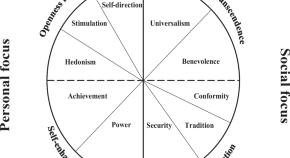
Collection
Research on Value Development in the School Context: New Directions and Approaches from an International Perspective
- Submission status
- Closed
Editors
-
Anna K. Döring
Anna K. Döring is a Reader in Psychology at the University of Westminster. She received her PhD and the Venia Legendi in Psychology from the University of Muenster. Döring’s research focuses primarily on the development of values from early childhood through adolescence to adulthood, and she is the developer of the Picture-Based Value Survey for Children (PBVS-C) – the first instrument for the assessment of children’s values. Her research on children’s values includes data from thirteen different countries, and has been published in leading journals in educational, developmental, and personality psychology.
-
Elena Makarova
Elena Makarova is a Professor of Educational Sciences and Director of the Institute for Educational Sciences at the University of Basel. She received her PhD and her Venia Docendi at the University of Bern and was a postdoctoral fellow of the Swiss National Science Foundation (SNSF) at the Victoria University of Wellington, New Zealand, and at the University of Illinois at Chicago, USA. Currently she is a fellow representative of the Board of the International Academy for Intercultural Research (IAIR). Her research focuses on development, learning and teaching in the face of heterogeneity in the school context.
-
Ella Daniel
Ella Daniel is an Assistant Professor and Head of the Social Development Laboratory at the Department of School Counseling and Special Education, Tel Aviv University. She completed her PhD at the Psychology Department of the Hebrew University of Jerusalem and was a postdoctoral fellow at the University of Toronto (2011-2014). She is currently a visiting scholar at the Department of Experimental Psychology, University of Oxford. Her main research areas are the development of values and prosocial behavior, and the ontological and social contexts for this development.
-
Maya Benish-Weisman
Maya Benish-Weisman is an Associate Professor at The Paul Baerwald School of Social Work and Social Welfare at The Hebrew University of Jerusalem. She received her PhD at the Hebrew University of Jerusalem and was a postdoctoral fellow in the Psychology Department at the Graduate Center, the City University of New York. She was a Senior Lecturer in the Counseling and Human Development Department at the University of Haifa and was the head of the Educational Counseling program. Benish-Weisman is a recipient of multiple research grants from competitive grant foundations.
Articles (2 in this collection)
-

-
A web-based prosocial intervention can shape adolescents’ values: findings from a mixed-methods study
Authors
- Claudia Russo
- Anna K. Döring
- Daniela Barni
- Content type: OriginalPaper
- Published: 13 December 2023



